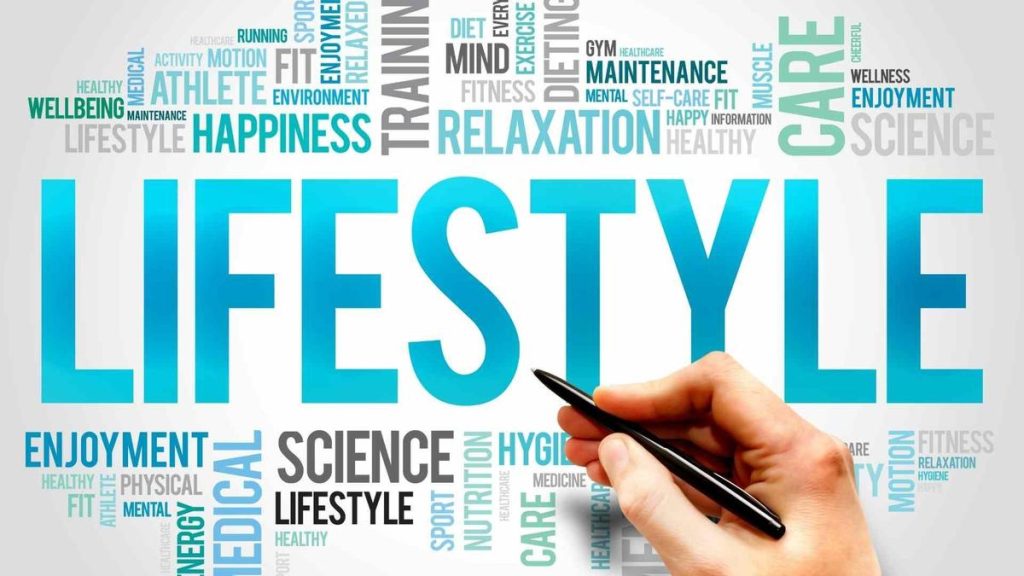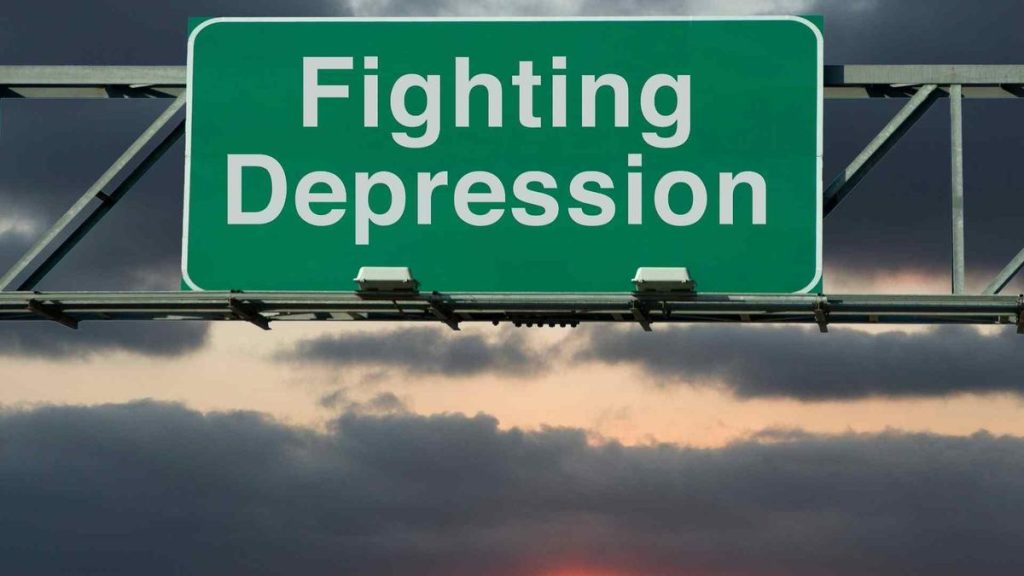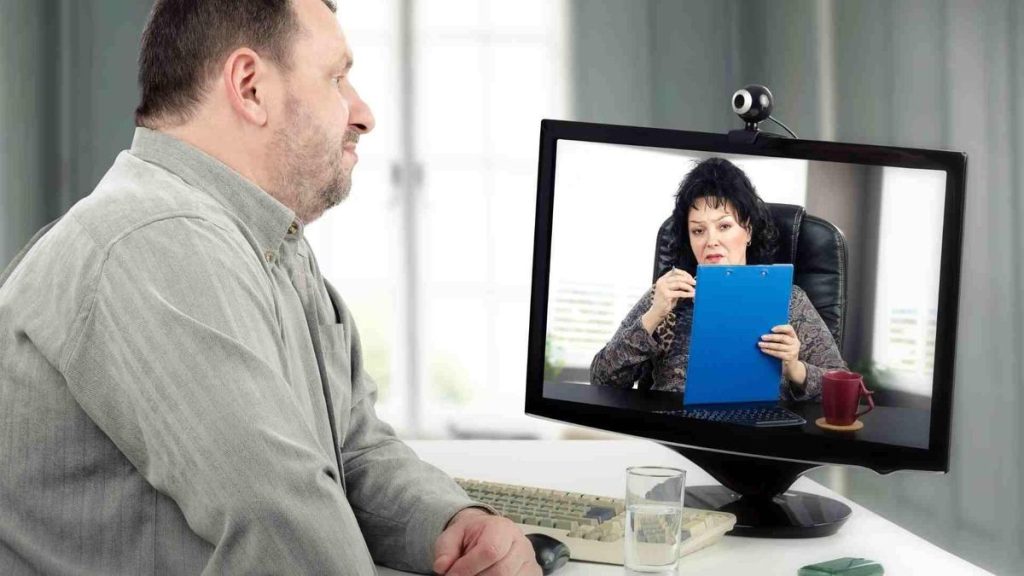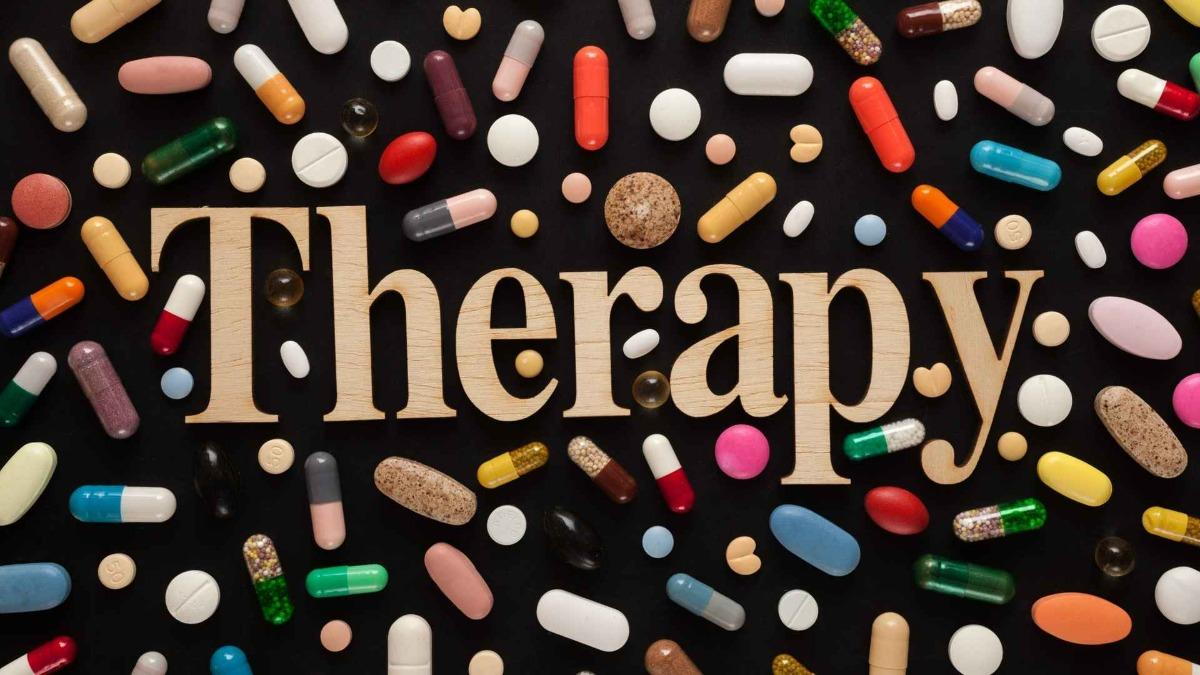When someone is depressed they tend to feel like there is a dark shadow over them that they just can’t get from under. The good news is, no matter how severe one’s depression, it can be treated. But how does therapy help in the treatment of depression?
WHAT ARE MY DEPRESSION TREATMENT OPTIONS?
Is depression keeping you from living the life you know you should be living? It sounds like it is time to seek help. There are multiple ways to treat depression including medication, healthy lifestyle changes, and therapy. How does therapy help in the treatment of depression? At Estadt Psychological Services, we offer therapy that matches your needs, with a free consultation so you can determine if our services are right for you without spending anything out-of-pocket.
No two people are affected in the same exact way by depression and so there is no “one size fits all” option for treating or curing depression. What works for one individual may not work for another. When you get professional help, you can find the type of treatment that will be most useful for you and will fit your budget. When you get the help you need, you can reclaim your life and start feeling happy and hopeful once more.
TIPS FOR CHOOSING YOUR DEPRESSION TREATMENT
The first thing you want to do is learn as much as you can about the type of depression that you believe you may have. As much as you want to do your own research, you will also need a professional to help you determine if there are any underlying causes for your depression. Sometimes there can be medical causes that will need treatment themselves. The severity of your depression is also a factor as the more severe your depression is, the more intensive your treatment will need to be.
Note that sometimes it will take a while to find the right treatment. There is often some amount of trial and error in trying to find out what type of support you will need during the process. It can take your therapist a couple of attempts before they can determine the right approach. And there are times when you may need to take an antidepressant as well as include some physical activity in your treatment regimen.
It is important that you not rely solely on medication for the relief of depression symptoms. Medication is also not usually suitable for long-term use. Other treatment options include therapy and exercise as well as meditation. Even when medication is prescribed it is important to note that the best results are achieved when you make healthy lifestyle changes in conjunction with the medication.
Another essential step in finding the right treatment is having social support. This is very important to help ease your feelings of depression. Choose your trusted friends and family members to support you on your journey as you get the treatment necessary. If you don’t have the support of friends or family members, you can try out support groups. You can find face-to-face groups or online groups that can provide excellent support.
Remember that asking for help is not a sign of weakness. Also, remember that your treatment will take time and so you need to be patient with the process. We understand that you want to get relief as soon as possible from your depression, but more often than not, these treatments take time. This can be frustrating but if you are consistent you will start seeing results over time and will be happy you stuck with it.
LIFESTYLE CHANGES IN THE TREATMENT OF DEPRESSION

Lifestyle changes can play a big role in your treatment for Depression. Often times it is all one really needs to overcome their symptoms and to prevent the feelings and episodes of depression from coming right back.
Exercise
Just adding a regular exercise routine to your day to day can be as effective as using medication to treat your depression. Exercise works because it is a natural serotonin and endorphin booster. These are the chemicals that give you that “feel good” just like antidepressant medications do. Just adding a daily 30-minute walk to your routine can make a world of difference.
Social Support
When you have a strong social network, your chances of isolation are greatly reduced. Isolation is a key factor for depression, so you will want to stay in touch with friends and family or join a support group that will work with your schedule. You can also opt to volunteer as this can help you socialize with others and do something helpful and meaningful for others as well.
Nutrition
It is important that you eat well so you can be healthy physically and mentally. You want to eat a balanced diet and stay away from foods that will affect your energy and mood. Avoid simple carbohydrates that may provide you with a quick boost only to later cause a crash. Instead, opt for complex carbs and foods that are very nutrient-dense.
Sleep
Getting the right amount of sleep and good quality sleep is a key factor for improving symptoms of depression. Sleep affects your mood and so when you are not sleeping well, you will find that your depression symptoms are worse. A lack of sleep causes fatigue, sadness, moodiness, and irritability. Aim for between 7 and 9 hours of sleep each night.
Reduce Stress
There is a clear link between stress and depression. We all have stress, but if you can take steps to minimize your stress, this will help you to better treat your depression. Stress not only exacerbates your depression but also puts you at a higher risk of depression in the future.
Take a look at the aspects of life that are stressing you out, these may include unsupportive relationships, work overload, financial problems, and more. Find ways that allow you to minimize the impact that these life stressors are having on you, so you can reduce your symptoms of depression.
HOW TO RULE OUT MEDICAL CAUSES OF DEPRESSION.

Do you think you may be depressed? Then there may be lifestyle changes that can help you work through your depression. You can start by making an appointment to see your medical practitioner such as your family doctor. Make an appointment asking your doctor for a complete checkup and indicate to them that you think you may be depressed. This allows your doctor to examine you to see if there are any underlying causes that may be contributing to your depression.
If it is found that your depression is from an underlying medical condition, then therapy and antidepressants will only do so much to help you. Depression with underlying medical conditions requires the treatment of the underlying condition to treat the depression. A trip to the doctor can help to identify the condition so it can be treated and so you can see improvements from your depressive episodes.
Your doctor will check for any type of medical condition that mimics depression. This way they can make sure that you are not taking any medications that will give you a side effect of depression. There are a number of medical conditions that can cause you to have symptoms of depression, these include:
- Hypothyroidism – this condition is caused by an underactive thyroid. In women, this is a very common mood buster.
Older adults who are taking multiple medications are at risk for depression as there is a risk for drug interactions that can cause symptoms of depression. If you are taking multiple medications daily, then you are at a higher risk of medically induced depression.
SHOULD YOU DO INDIVIDUAL THERAPY OR GROUP THERAPY?
When you hear the word therapy you may think of one-on-one sessions with a practitioner. However, there are other types of therapy.
Group therapy can be used in the treatment of depression. Whether you are doing individual therapy or group therapy, these therapy sessions are typically 1 hour long. Each type of therapy has its benefits and also has its drawbacks. For example, in a group therapy session, you may not be comfortable sharing sensitive information that you would be more likely to share with your therapist alone. If that is the case, then you may feel more comfortable in an individual therapy session.
During group therapy, individuals who have the same struggles are grouped and have the chance to talk to each other and to talk to the therapist. These therapy situations are ideal for persons who need help to build self-esteem.
Oftentimes each member of a group therapy session is at a different place in their depression. This is good, as it allows everybody to have a different perspective of what depression is like at various stages.
Group therapy helps to offer you ideas on how you can deal with challenges that you may face in your life based on somebody’s experience that was shared during a therapy session. Group therapy is also great for giving you the social support that you need if you cannot find it in your personal life.
FINDING A THERAPIST
Your first step in choosing a therapist for your depression is to find one. You want a therapist that is supportive and caring and somebody that you will be able to open up to. If you do not have a connection with your therapist, then your treatment may not be successful. Here are some ways you can find a therapist that will be ideal for connecting with you, so you can get the best treatment options.
Word of Mouth
Have any of your friends or family members gone to see a therapist before? If yes, they can give you a recommendation based on their experience with their therapist. While your friends and family members may have some ideas of a good therapist, you can also get recommendations from your primary care physician. As a matter of fact, most often, your initial referral will likely come from your primary care physician if you discuss your issues together.
You can also get referrals from national mental health organizations in your area. Look for these online to find your local mental health organization’s website and see if they have a list of practitioners that they recommend.
If the cost factor is a deterrent in the therapist that you choose, you can find some mental health professionals at local organizations. These can be at your community center, churches, or local senior centers. Many of these places will offer some amount of free sessions, and they may offer sliding-scale payment options so you don’t have to make a large payment up front to get the services you need.
TREATING DEPRESSION WITH MEDICATION

You may have seen advertised medications for treating depression, however, some of these may not be effective. Depression is not simply about a chemical imbalance in the brain, and so there are some types of depression that may not be treated adequately with medication.
Severe and moderate depression will require long-term solutions to target underlying problems, and this is one of the main reasons why medication alone may not work.
Also, remember that antidepressants come with their own set of safety concerns and side effects, and often there are withdrawal symptoms that are going to be hard to deal with. If you are prescribed antidepressants, you want to ensure that you have all the facts so that you make an informed decision.
If you opt to take medication for your depression, it is important to note that you should also include lifestyle changes as a part of your treatment. Lifestyle changes and therapy provide you with the skills that you need to ensure that your depression does not return. Medication does not provide you with this.
TRANSCRANIAL MAGNETIC STIMULATION THERAPY (TMS)
Transcranial magnetic stimulation, or TMS, is a method of treatment that is used for major depression. It is prescribed for those who have been resistant to other methods of treatment, including self-help, medication, and therapy.
TMS is a non-invasive treatment that involves sending magnetic energy pulses to regions of the brain that deal with mood. The treatment is painless and the brain cells are stimulated through the skull. It helps to improve communication between the brain cells and different parts of the brain so that the symptoms of depression can be reduced.
TMS can help to improve the symptoms of depression that are resistant to other types of treatments, however, it is not a cure and cannot guarantee that depression will not return. So, again, this is yet another type of treatment that must be combined with lifestyle changes and therapy to help produce the best results and ensure or decrease the chances of depression returning.
COMPLEMENTARY AND ALTERNATIVE TREATMENTS FOR DEPRESSION
Alternative and complementary treatments can include herbal supplements, vitamin supplements, acupuncture, relaxation techniques, yoga, Tai Chi, or mindfulness meditation.
Supplements That Treat Depression
There are supplements, vitamins, and herbal remedies that are used to treat depression. Many of these are available over-the-counter, but for the most part, they have not been scientifically proven to help treat depression.
In the event that your depressive symptoms are the result of a nutritional deficiency, a vitamin supplement may be a big help. Of course, you don’t want to self diagnose, and so this should be done under the advice of your physician.
If you opt to try herbal or natural supplements, remember that these may have food interactions, drug interactions, or side effects. For example, St John’s Wort is a herb that is used for the treatment of mild to moderate depression. It is a very popular option, but it does interfere with prescription medications, including prescription antidepressants, birth control pills, and blood thinners.
If you are taking any of the previously mentioned medications or supplements, you should indicate this to your doctor or therapist so they know what is best to recommend.
Are There Any Alternative Treatments For Depression?
Yes, there are.
Relaxation
Relaxation techniques can help to relieve the symptoms of depression by reducing stress and improving feelings of well-being and happiness. You can incorporate relaxing techniques such as meditation, yoga, deep breathing, and progressive muscle relaxation.
Acupuncture
Acupuncture involves the use of fine needles inserted at specific points on the body for the restoration of balance. The use of acupuncture for treating depression is being investigated increasingly and there are studies that show results that are very promising. If you are up for trying acupuncture as a means of treating your depression, please ensure that you are using a licensed practitioner.
DEPRESSION IS HIGHLY TREATABLE

You are not alone feeling sad. Everybody gets sad from time to time. Depression, however, is not simply sadness. Depression is characterized by despair, an extreme sadness that lasts for days on end. Depression can interfere with your daily activities and can even cause physical pain for some individuals. If you are experiencing depression it is important to note that your depression is treatable.
Depression is also known as clinical depression, a major depressive disorder, and is one of the most common mental health problems diagnosed in the United States. It was estimated in 2014, that 15.7 million adults, or around 6.7% of the adult population, had at least one major episode of depressive disorder.
Do you struggle with depression?
We have clinicians expert on depression, feel free to read about them, or book a free consultation to review your situation.
UNDERSTANDING DEPRESSION
Depression is very dynamic, and so it affects different people in different ways. Most have similar symptoms that include:
- Feelings of emptiness
- Prolonged sadness
- Hopelessness
- Helplessness
- Worthlessness
- Guilt
- Irritability
- Anger
- Restlessness
- Fatigue
- Difficulty concentrating
- Changes in appetite
- Inability to sleep
- Chronic pain
- Withdrawal from family and friends
- A loss of interest in daily activities
- Thoughts of suicide or death in general
It is important to note what causes depression. Depression is caused by a combination of social, environmental, biological, psychological, and genetic factors. Persons who have a family history of depression are at a higher risk of having depression themselves. Individuals who have chronic diseases such as cancer or heart disease are also at a higher risk of having depression. Any major life change, such as trauma or stress, can bring on an episode of depression, but there need not be any obvious external causes.
Treating Depression
Do not feel like depression is a sign of weakness. It is not something you can snap out of quickly. It is an illness, and like any other illness, it requires professional treatment. With the right care, you can feel better and you can overcome your depression.
The first thing that you may imagine when you think of treatment for depression is an anti-depressant medication. These can be helpful for reducing the symptoms of depression in some people, especially if they are severely depressed.
Another very effective treatment for depression is psychotherapy. Psychotherapy can be done alone or it can be done in combination with antidepressants. This form of therapy has been proven to be very beneficial for the long-term treatment of depression and for preventing the return of depressive symptoms. It has been proven to be useful as a treatment by itself as well as in combination with other types of treatment.
Seeing a Psychologist About Your Depression

A psychologist is a highly trained mental health professional that has experience in helping patients who are suffering from depression. There are a number of different approaches to psychotherapy that have been useful for helping persons with depression to recover. Psychotherapy has been used to treat both mild and moderate bouts of depression.
If you are suffering from depression, Psychotherapy can help you to pinpoint a life event that is contributing to your depression. It can also help you find ways to accept these changes, adapt to them, and move away from them so you can live a fulfilling life.
Psychotherapy can also help you to set realistic goals for your future and can help you to identify any of your thought processes or behaviors that are unhelpful and that contribute to your feelings of helplessness and hopelessness. Psychotherapy It can help you to identify problems & symptoms that interfere with your coping skills so that you can prevent future episodes of depression.
Interpersonal therapy and cognitive-behavioral therapy are two of the most common types of therapies that are used for the treatment of depression.
Interpersonal Therapy
Interpersonal therapy, or IPT, teaches patients how to improve their relationships with others. It explores problem-solving and emotional expression to help individuals find healthier ways of dealing with their day to day interactions with others.
IPT also helps patients to adapt to troubling events in their lives and to build the social skills that they need to have better relationships. It helps them to increase the support that they need to help cope with life stressors and other symptoms of depression.
Cognitive Behavioral Therapy
Cognitive-behavioral therapy, or CBT, is a therapy that helps patients to manage negative thoughts and behavior patterns that are contributing to their feelings of depression. CBT helps patients to change their beliefs and behaviors that make depression worse and replace these with more positive ideas and outlooks.
While there is no one single approach to therapy that works for everybody, therapists can work closely with their patients and create a treatment plan that is tailored to the unique concerns of that patient. So therapy helps patients by teaching them how to cope and manage their symptoms. These strategies are ideal for helping patients to cope and function at their best.
Depression in the Younger Generation
Statistics show that depression is very common among adolescents. An estimate in 2014 showed that 2.8 million children between the ages of 12 and 17 had at least one major depressive episode.
It can be hard for parents to decipher if their children or child is depressed because adolescents tend to be very moody. If you think your child is extra irritable or if you see they are sad persistently for more than 2 weeks or are unmotivated, it’s a good idea to get them evaluated.
Antidepressant medications can be effective for the younger generation in treating depression. However, they do have side effects that are very serious, one of which is an increased risk of suicidal thoughts. Because of this, many healthcare providers and parents prefer to treat children without the use of antidepressant medications. Their go-to is always Psychotherapy first.
Both IPT and CBT are great for treating young people that are suffering from depression. There are numerous studies that show that a combination of CBT and antidepressant medication is the most effective treatment for those suffering from depression.
At the end of the day most children recover from depression, there is still research that needs to be done for those who are at a higher risk of recurring depression later on in life. With either IPT or CBT treatment, your children can recognize the signs of having a depressive episode early on, so they can quickly revert into a non-depressive state.
PSYCHOTHERAPY FOR CLINICAL DEPRESSION
Psychotherapy or talk therapy has been found to be a very effective treatment for clinical depression when combined with medications.
What Can It Do?
Psychotherapy is used to help people find ways of dealing with their everyday stressors. It can help people to use their medications properly so that they can see the relief they need.
There are multiple studies that show that therapy is a possible treatment for depression. There are equal amounts that also showed that combining Psychotherapy with medication can increase the possibility of success.
What Are The Benefits?
There are a number of benefits of psychotherapy, these include:
- Easing stress
- Giving a new perspective on problems
- Improving your ability to stick to the treatment
- Giving you the tools you need to cope with the side effects of your medication
- Helping you to learn to talk to people about your condition
- Identifying early signs of depression before they get too bad
Different Types of Psychotherapy?
We addressed CBT and IPT above, and now we will address some other types of psychotherapies that are used for the effective treatment of depression.
- Psychodynamic therapy is a traditional type of therapy where your therapist will explore your behavior patterns and any motivation that you are not aware of that contributes to your depression. Oftentimes, this therapy focuses on any trauma that you experienced as a child.
- Individual counseling takes place as a one-on-one session with you and your therapist. A therapist in this situation could be a nurse practitioner, licensed clinical social worker, psychologist, psychiatrist, or a doctor. Whatever the job title of the person with you in the session, they would have had experience treating depression and other types of disorders that are related to mood. The therapist in this situation will talk to you about your depression. They will help you to understand and implement strategies to manage your stress and keep you from worsening your depression or from recurring depression.
These types of sessions are ideal for identifying specific triggers and stresses that bring on depression or that worsen it. A therapist can work with your issues at work or home and can help you to maintain healthy connections with your friends and family members. Your therapist will help you to make good choices and adopt good habits such as seeing your doctor regularly and getting adequate amounts of sleep.
- Family counseling is a type of therapy that treats the entire family. Sometimes it is not only one person that is affected by depression. In families, we find that one person being depressed usually indicates depression in other family members as well. This is especially true when the depression is brought on by the loss of a loved one or a major life event that affects the entire family. This type of therapy is ideal even if your family members are not going through depression. In this way, they can have professional guidelines on how to behave around you and towards you so that they do not make things worse.
During family counseling, your relatives can learn about depression, and they can be better able to help you with other facets of your treatment such as medication compliance, improving sleep habits, and improving lifestyle changes.
This type of therapy opens a space for your family members to talk about your depression and other sources in their life that they may not be comfortable talking about otherwise. This also helps, since your therapist is there to guide the discussion so you won’t feel attacked or guilty for being in a current state of depression.
- Group counseling therapy is a great way for those who lack social support to get the therapy they need and also get that support they need. This type of therapy allows you to meet people who are going through similar situations as yourself and it allows you to get help from them through their sharing strategies and experiences that they encounter on a daily basis. Group counseling sessions provide a means of learning good ways to deal with and think about your illness, and also give you an avenue to socialize with other people that understand what you’re going through.
- Dialectical behavior therapy is another type of help. This is a form of CBT with the goal of teaching those who are depressed whatever skills they need to cope with their stress, improve their relationships, and regulate their emotions. The therapist in this type of situation will incorporate practices for mindfulness that are used in crisis coaching. The patient can call on their therapist to get guidance on how they can go through their difficult situations as they arise. As a patient practices the skills they learned during these therapy sessions, they get better at handling their challenges on their own.
- Couples therapy is another type of therapy that is ideal for those in a romantic relationship. Like family members, these individuals may have depression that is affecting both members of the relationship and so may need to address the problem together. There may be dysfunction in the relationship that is causing the depression for one or both parties, and so in either case, having a couples’ therapy session or multiple sessions will help the depressed person even if both parties are not depressed.
How Do I Find a Therapist?
So you are ready to find a therapist. That’s good, you are in the right place. You want to find a therapist that has expertise in treating persons with depression. You can get the help you need here by contacting us for more information, or check out our resources section if you need more information before reaching out.
HOW LONG DOES THERAPY TAKE?
How long it takes is different from one individual to the next. There are some people that can easily benefit from short-term therapy, while there are others that have to have long-term treatment. Persons with treatment-resistant depression will need longer psychotherapy in a combination with medications to effectively treat their condition.
Studies show that psychotherapy provides more improvement in depression symptoms and better social functioning and life satisfaction. This may, in turn, lower the risk of relapsing for those who are successfully treated.
You may have already been treated with psychotherapy if you have been diagnosed with treatment-resistant depression. Even if it didn’t work, the first time around you can always give it a second try. Here are a couple of things you may want to consider before you try psychotherapy for a second time.
- Why did it fail in the past? Can you identify what you needed from therapy that you weren’t getting? Answering these questions may help you to determine what happened in your last sessions and why they didn’t work so you can now change the narrative in your new sessions.
- What do you want from therapy now? Are you trying to tackle a specific problem? Do you want to tackle a particularly upsetting event that happened recently? When you come up with goals for your therapy you may be better able to position yourself in a way that will ensure that the therapy will be successful.
- Go back to your old therapist. While you may think therapy didn’t work the last time because of your therapist, you may be wrong. Your experience could be different the second time around. With your goals in hand this time it will make it easier for your therapist to understand you, understand your history, and understand your situation. This way you will have a better connection with your therapist the second time around. When you are in tune with your therapist and vice-versa, it is highly likely that your therapy will be more successful.
- If you really don’t want to go back to your first therapist, that is understandable. It is okay to try somebody new. Ensure the therapist that you will be seeing has the experience working with the form of psychotherapy that is necessary for the treatment of your specific type of depression. Choose a therapist that you like and respect so that you can be comfortable enough to work alongside them. If you and your therapist do not “click,” then it is unlikely that your therapy will work. So if you are considering trying somebody new, you might want to meet with a couple of therapists before choosing one. Talk about your goals with each one and ask about their approaches, then you can look at the information you gathered and decide which one speaks to you more.
- Be patient. Once you’ve chosen your therapist, you want to give the therapy a chance to work. You don’t want to give up after just a couple of sessions. Depression will take time to go away, especially depending on the severity. Therapy can take more time than you’d like it to, and it can be frustrating. However, sticking to your therapy is the best way to come up with a solution for your depression.
CAN COUNSELING HELP WITH DEPRESSION?
Depression is a mood disorder that affects an estimated 16 million American adults per year. Depression has the ability to affect how you feel and interact with the people around you, as well as how you go through your everyday life. It is mostly known for the feelings of sadness that it brings on. However, depression can also bring on feelings of loss of interest and loss of happiness. The condition can affect anyone and it can happen at any age.
You are not alone if you are depressed, and it is important to note that it can be treated. There are reports that up to 90% of people suffering from depression respond well to treatment. The reason for this is the therapeutic process. It is necessary for you to find the correct psychologist, psychotherapist, or counselor to understand the underlying causes of your depression, so they can develop the right strategies to help you feel better.
While we have been saying a lot about treating depression, we have not gone into depth about the different types of depression. In this next section, we will go into the types of depression that you may be experiencing.
Types of Depression
Depression can be complicated in the sense that it requires a complex process to be diagnosed. Typically, depression is diagnosed when symptoms are present for at least two weeks. The DSM-5 defines depression and classifies it into the following types:
- Persistent depressive disorder
- Major depressive disorder
- Seasonal affective disorder
- Postpartum depression
- Bipolar disorder
Treating Depression
The type of treatment you receive for your depression is determined by the type of depression that you are experiencing. You can be treated through counseling or psychotherapy. What is the difference between the two? And how do you know which one you should choose?
Counseling vs. Psychotherapy
Psychotherapy, or talk therapy, is often the first step that is used to treat mild to moderate depression. This road is taken before trying medication. When depression is more severe, a combination of medication and psychotherapy is used. We have touched on this previously in this article.
Counseling though is a short-term therapy that can help with symptoms of mild to moderate depression. Counseling lasts usually around six months and is ideal for recurring single issues or new issues that were not addressed before in previous psychotherapy sessions.
The severity and length of your symptoms and your episodes are often used to determine what type of therapy you will need. Typically, if you have been depressed for a long time, you may be recommended to see a psychologist or a psychiatrist. These individuals can deal with deeply rooted issues from your past so they can be addressed in helping you move forward.
The role of your therapist is to listen to you as you talk about your experiences and how you’re feeling, to provide feedback, and then to help to develop strategies for you to cope. Your therapist will evaluate your progress over time and adjust your sessions and your therapy accordingly. There are times when you may be asked to do homework that helps you to keep track of your moods and feelings in a journal or some other medium.
In counseling, the therapy focuses more on your present feelings, thoughts, and behaviors and how these are currently affecting your life. As noted earlier, psychotherapy does the opposite and looks at issues from the past.
ONLINE COUNSELLING

You may want to consider online therapy if you have a mild form of depression or if you are still a little bit apprehensive about talking to somebody about your problems. Online therapy has become increasingly popular in recent times, especially in 2020 with the pandemic. There are a number of options that you can choose from including desktop programs, phone applications, and more. You can set up individual sessions with counselors or you can simply type messages and your therapist will respond at a time that’s convenient to them.
Living with depression can be very overwhelming. Choosing the right mental health expert helps to provide a safe environment for you to share your thoughts and feelings and patterns of behavior that are contributing to your symptoms. Counseling can help you to develop the skills and techniques you need to manage symptoms and cope better.
If you think you are depressed, you may be wondering, how does therapy help in the treatment of depression? It sounds like it is time to talk to a professional. It is important to talk to somebody you feel comfortable with and somebody that you can trust.
Opening up about your depression is one of the biggest steps you can make in trying to alleviate your symptoms. Your chances of success are highly dependent on your ability to open up. Do you think you are ready to speak to a mental health professional? The members of staff here at ESTADT Psychological Services are waiting to hear from you. Please fill out our appointment request form so that we can help you get through your depression sooner.
Do you struggle with depression?
We have clinicians expert on depression, feel free to read about them, or book a free consultation to review your situation.
